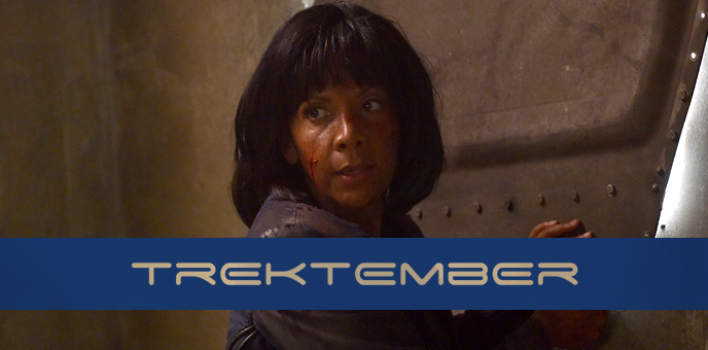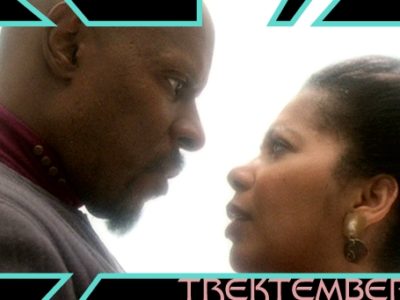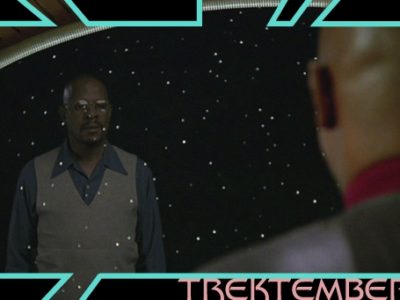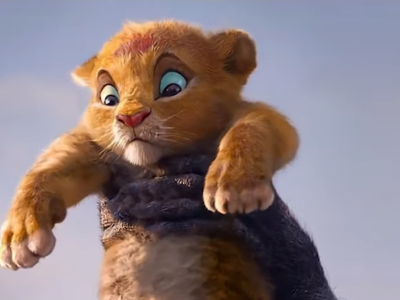Trektember: Into the Fold | The Orville
Recap
On a trip to a play planet for children, Dr. Finn, her sons Ty and Marcus, and Isaac are drawn into a spatial fold (a spatial anomaly that is a fold in spacetime) and crash land on a moon, but not before the shuttle rips in half, separating Dr. Finn from her sons and Isaac. As the Orville launches a rescue mission, Isaac and the boys set out to reunite with Dr. Finn. Unbeknownst to them, she has been captured (or rescued) by Drogen, an isolated loner from a society that has been devastated by a weaponized plague, whose hungry, cannibalistic remaining denizens the stranded Orville compatriots must combat as they seek reunion and rescue.
Review
I am an ardent fan of this series, though I hardly consider it “better Star Trek” than Star Trek: Discovery. It is certainly more like ’80s and ’90s Star Trek than the current series, but that sometimes results in the forced plot advancement, contrivances, and uneven quality that frequently plagued the network and syndicated versions of Trek. The comedic quality of much of the series offsets these shortcomings by asking the audience to not take the series too seriously. Still, the series manages some very serious and ethically complex moments and stories that are both surprising and refreshing, even if the morality of the morality plays it contains is at times muddled.
Some of that muddled morality, or at least the use of questionable tactics, shows up in this episode. A particularly grim entry for the series, it is widely regarded as the darkest place to which the series goes in its first season. While the plot is somewhat derivative (a hallmark of much of this series, though not always a negative), the execution is compelling, resting largely on the performances of its actors. All five of the main characters on the moon are played to compelling effect and the relational dynamic between Isaac and the Finn family is both believable and enriching of all the characters involved. This is a great introduction for the Finn boys and portends good things to come from this and other family story lines in the series.
Reflection
My primary ethical struggle with this episode is with one of its core themes: the valuing of life. When handing Marcus a PM-44 plasma weapon with which to defend the shuttle from the encroaching horde of cannibals, Dr. Finn tells her son, “Make sure you keep it on stun. They may not value life, but we do.” Similarly, when everyone is safely aboard the Orville and Ty has begun to make his recovery from the weaponized plague, Commander Grayson says she plans to ask the Planetary Union for permission to share the cure with the people on the moon, demonstrating a respect for the dignity of their lives, even if they themselves have lost such sense of their own dignity.
All of that is noble and correct—not to mention consistent with Christian ethics—but it is tainted somewhat by the fact that, shortly before making her statement about valuing life, Dr. Finn kills both Drogen and a roaming cannibal attacker. Of course, an argument can clearly be made in both instances for self-defense. While this is legally appropriate in most countries, it is questionable whether it is acceptable from a purely Christian perspective. In any case, it’s hard to argue that you value life after you have taken lives twice over. It also seems that, at least with Drogen, Dr. Finn might have had non-lethal options available to her.
In fact, Drogen actually seems concerned for Dr. Finn’s safety, telling her, “You’re in a safe place,” “Food is scarce; don’t waste it,” and “You are very lucky I found you.” Both the script and Star Trek veteran Brian Thompson’s performance seem to begin showing us a benevolent, even caring side to Drogen, shortly before Dr. Finn stabs and shoots him. Indeed, her opportunity to make this attack was brought about by her ability to convince him to go on an errand of mercy for her, retrieving medical supplies from the crashed shuttle. In light of this, perhaps he could also have been convinced to guide her to Isaac and her sons. In any case, apart from keeping her locked in her room (which was arguably for her own safety), the episode shows no specific ill intent on Drogen’s part.
All of this calls into question Dr. Finn’s decision to kill Drogen. She could either have exerted more effort toward telling her story and appealing to him to help her (as seems to be his goal, describing his act as a rescue) or used a heavy object to knock him unconscious. This is to say nothing of the fact that she seems to have taken no pains to even attempt to exit the building on her own before Drogen’s return, something she seemingly has no problem accomplishing after she kills him.
Showing the clear philosophical influence of Star Trek on both this series and this episode, creator Seth MacFarlane said in an interview, “Gene Roddenberry’s philosophy was always very meaningful to me when I was a kid. I always loved that the phasers were set on stun. That was something you really only saw on that show. That there was actually an ethical code, that it wasn’t about just shooting faceless bad guys. It was about respect for life.” While that’s largely true, this is the series’ second episode in three weeks featuring an attempt to save lives alongside possibly unnecessary collateral death—arguably, shooting faceless bad guys. However, where “Krill” poignantly acknowledges that dissonance, “Into the Fold” ignores it completely.
On a more positive note, there is another theme in this episode that is much more convincingly explored—that of the chosen family and friendship despite differences. As Isaac is forced into a caretaker or parent role while attempting to reunite Ty and Marcus with their mother, the trio forms a bond that evokes compassion and admiration in Dr. Finn as she expresses her gratitude to Isaac at the end of the episode. In the arc of this story, she convincingly progresses from unhappiness regarding Isaac’s presence to warm feelings toward the artificial life form and even the desire for his continued presence in her family’s life.
In this moment, the episode’s title takes on new meaning. While it certainly concerns the journeys of the shuttle and the Orville “into the fold” in spacetime, it also shows Isaac’s progress “into the fold” of the Finn family and therefore further into the fold of the ship’s crew. Given Isaac’s particular outsider status, this is a beautiful image of inclusion and may serve as a reminder that we are all invited into the fold of God’s family, no matter how different we may be. This should therefore encourage us to recognize ourselves and all of our neighbors as included in the fold of God’s love.
• • •
Trektember is an annual series about Star Trek; this year, we’re examining the first seasons of Star Trek: Discovery and The Orville. For more information on this series, click here; or, to read every article from the beginning, click here!








Pingback: Trektember: Season 3 Episode List | Reel World Theology